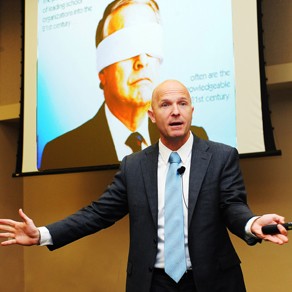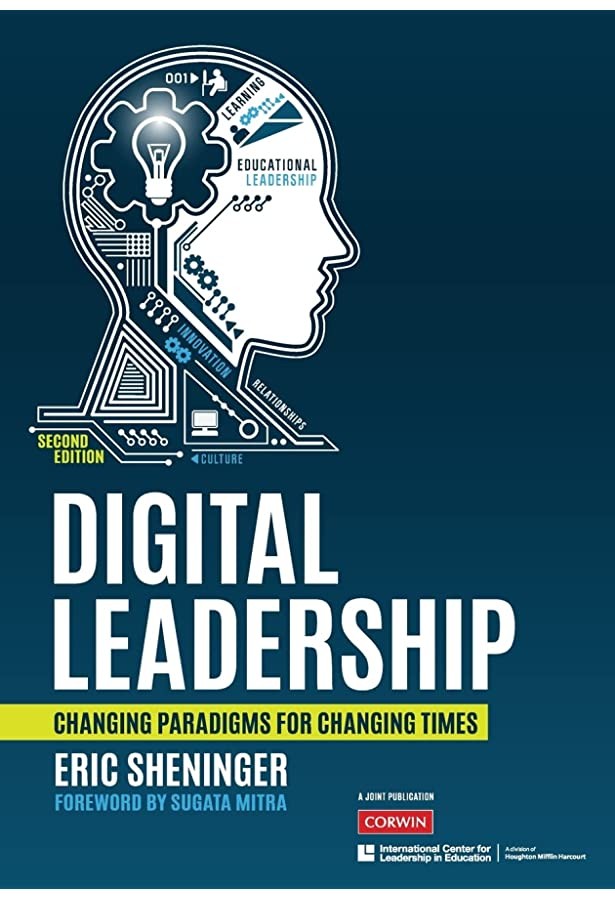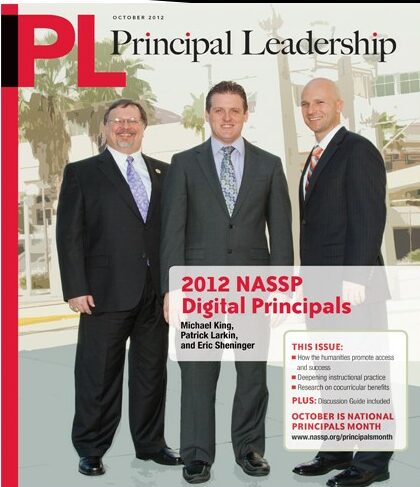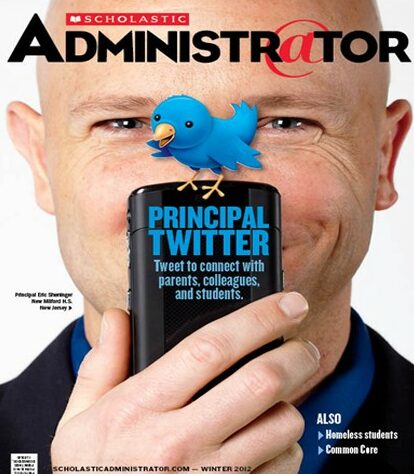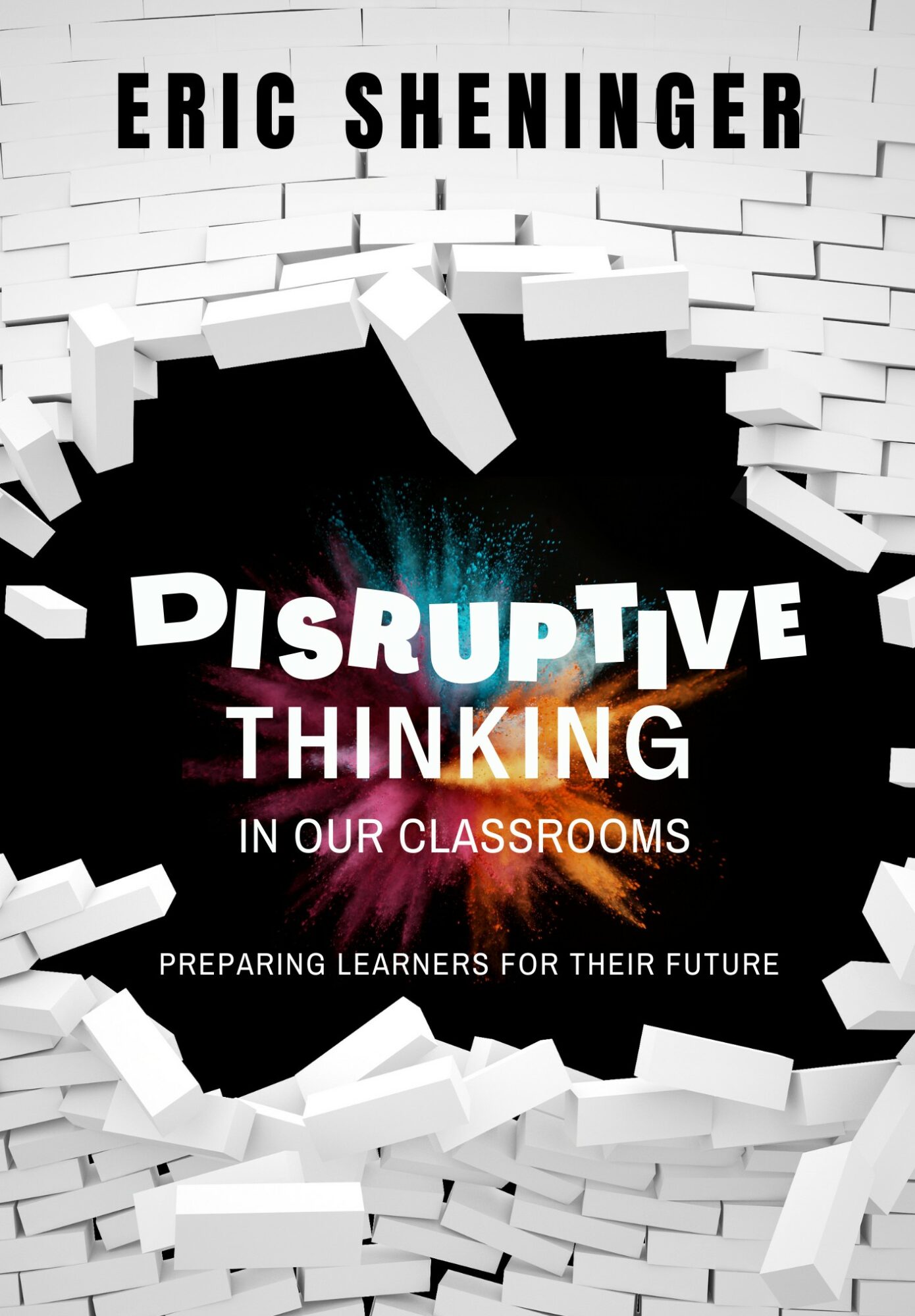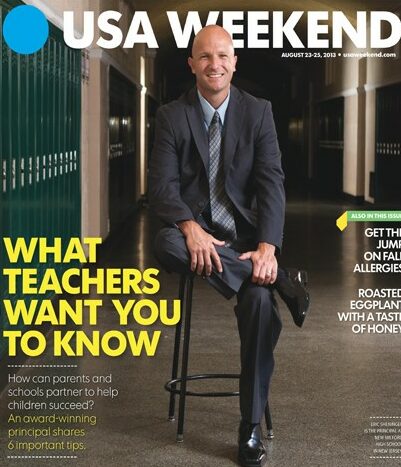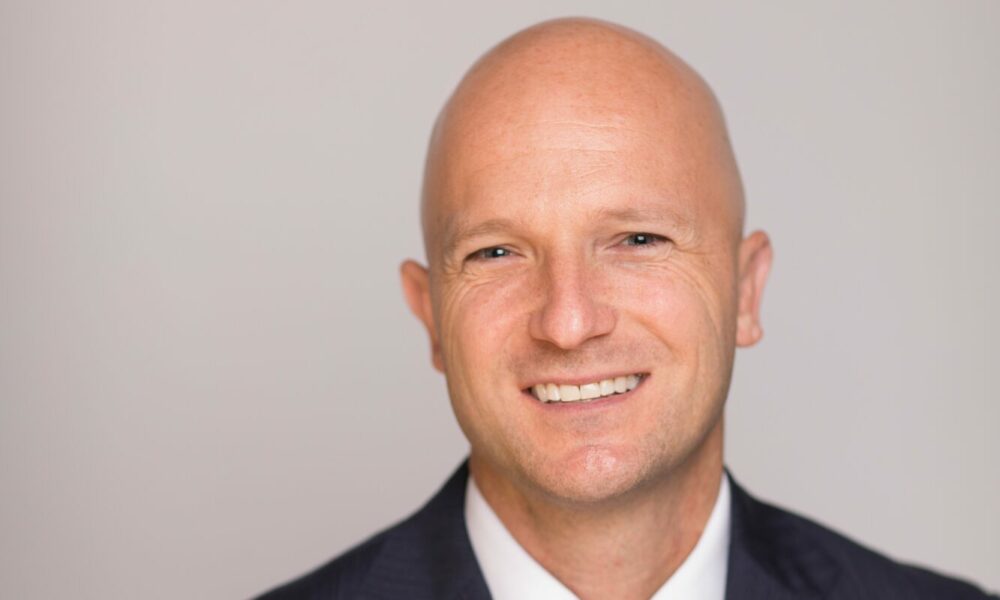

Today we’d like to introduce you to Eric Sheninger.
Hi Eric, we’re thrilled to have a chance to learn your story today. So, before we get into specifics, maybe you can briefly walk us through how you got to where you are today.
I never imagined I would have authored a book, let alone seven, or travel the world working with educators, schools, and districts. My unexpected journey began with a decision to give Twitter a try in 2009. This should never have happened either as I was convinced that any and all social media tools were a complete waste of my time and would not lead to any improvement in professional practice. Apparently, I was dead wrong on this assumption and quickly learned that Twitter in itself wasn’t a powerful tool, but instead, it was the conversations, ideas, resources, and passionate educators that connected with me. The rest is history.
I was just like every other school principal on the planet prior to becoming connected. My narrow focus was on sustaining a school culture focused on rules, compliance, conformity, and preserving the status quo. The end goal was to make sure standardized test scores increased (or at least didn’t go down) and traditions were preserved. On the inside, everything was great. Students and staff seemed happy while the community was supportive of our efforts. Each monotonous day began with students arriving at school and then going directly to their first-period class where they sat in desks arranged orderly rows. After listening to the daily announcements, the delivery of instruction began. My compliant students then went through their rigid eight-period day schedule, with each class lasting forty-eight minutes. At the end of each class, an annoying bell would notify everyone in the school that it was time to continue through the repetitive process. Throw in a few specialized programs, assemblies, and pep rallies, and this was basically the schedule we all followed each and every day.
During my first couple of years as principal, I was in a rut and didn’t know it. I led my school in a way that I was brainwashed into thinking was the only way. Education had become more about schooling than learning. Then it happened. My epiphany came in 2009 when I begrudgingly decided to give Twitter a try to improve communications with my stakeholders. Little did I know that this moment in time would totally redefine my purpose in education. As my behavior shifted from communicator to learner, I immediately discovered how blinded I was by a system so entrenched in methodologies and practices designed for a period in time that had long past. I learned how to unlearn and then relearn through conversations I began having with passionate educators across the globe. These conversations empowered me to begin the process of taking my school in a better direction for the sake of my students.
Little did I know, or plan for that matter, that sharing our transformation efforts would lead to me becoming an author. This was not my intent or even a goal. One day in 2010, I received a Twitter message asking if I would be interested in co-authoring a book. My first thought was, “Heck no! I am no author.” I was reassured that I could do this and was guided through the writing process. Thus, my author journey, and present job as a keynoter and consultant, began all because of the consistent efforts to share the work of my teachers.
Can you talk to us a bit about the challenges and lessons you’ve learned along the way? Looking back, would you say it’s been easy or smooth in retrospect?
It has been anything but a smooth road. In the previous response, I shared my journey in detail. It was then in 2009, that I possibly took the greatest risk of my young administrative career. After reading an article in the local Sunday paper on Twitter, I decided to step outside my comfort zone, disregard the perception that I had, and begin to use social media as a leadership tool. What began as just a way to communicate better with my stakeholders evolved into something that I never imagined. Once in the space that social media provided, I began to lurk and learn. It was at this point that I discovered the error and ignorance of my ways. What I lacked was education on how all aspects of technology could be used to enhance learning. Individuals who I had never met face to face not only challenged my thinking but ultimately saved my professional career.
While I have received numerous awards for my accomplishments and am a published author I still my own biggest critic. Traveling the world has been a humbling experience, and my work with educators constantly reminds me how much I can still learn and grow. The most significant lesson I have learned on this journey is the chase growth, not perfection.
Appreciate you sharing that. What else should we know about what you do?
Eric works with schools throughout the world helping educators meet and exceed their potential to improve outcomes for learners. Prior to this, he was the award-winning high school principal at. Under his leadership, his school became a globally recognized model for innovative practices. Eric oversaw the successful implementation of several sustainable change initiatives that radically transformed the learning culture at his school while increasing achievement. His work focuses on leading and learning in the digital age as a model for moving schools and districts forward. This has led to the formation of the Pillars of Digital Leadership, a framework for all educators to initiate sustainable change to transform school cultures. As a result, Eric has emerged as an innovative leader, best-selling author, and sought-after speaker. His main focus is using research and evidence-based practices to empower learners, improve communications with stakeholders, enhance public relations, create a positive brand presence, discover opportunities, transform learning spaces, and help educators grow professionally in the digital age. Eric has received numerous awards and acknowledgments for his work. He is a CDE Top 30 award recipient, Bammy Award winner, NASSP Digital Principal Award winner, PDK Emerging Leader Award recipient, winner of Learning Forward’s Excellence in Professional Practice Award, Google Certified Innovator, Adobe Education Leader, and ASCD 2011 Conference Scholar… He has authored 7 books including the best-sellers Disruptive Thinking in Our Classrooms, Digital Leadership, and Learning Transformed.
He has also contributed on education for the Huffington Post, sits on the advisory board for many innovative companies, and was named to the NSBA “20 to Watch” list in 2010 for technology leadership. TIME Magazine also identified Eric as having one of the 140 Best Twitter Feeds in 2014. He now presents and speaks nationally to assist other school leaders and educators to transform teaching, learning, and leadership… His blog, A Principal’s Reflections, was selected as Best School Administrator Blog in 2013 and 2011 by Edublogs. It was also recognized with an Editor’s Choice Content Award in 2014 by Smartbrief Education. Eric began his career in education as a Science Teacher at Watchung Hills Regional High School where he taught a variety of subjects (Biology, Chemistry, Marine Biology, Ecology) and coached several sports (ice hockey, football, lacrosse). He then transitioned into the field of educational administration as an Athletic Director/Supervisor of Physical Education & Health and Vice Principal in the New Milford School District. During his administrative career, he has served as District Affirmative Action Officer and was the president of the New Milford Administrator’s Association. During his tenure as high school principal he successfully implemented numerous initiatives including a new teacher evaluation system (McREL), Bring Your Own Device (BYOD), oversaw Common Core implementation, and initiated a new grading philosophy. Eric received his M.Ed. in Educational Administration from East Stroudsburg University, B.S. in Biology from Salisbury University, and his B.S. in Marine/Environmental Science from the University of Maryland Eastern Shore.
What was your favorite childhood memory?
When I reflect on my childhood, there were numerous profound experiences that impacted my trajectory. I still vividly remember spending my summers in Ocean City, NJ, where one set of my grandparents resided. To this day, there is just something magical about the beach. My grandfather Robert Lewis had many hobbies that intrigued my brothers and me. One of them was making jewelry. While could craft any stone into something beautiful, he often chose amethyst as purple was my grandmother’s favorite color. He was also fond of using opals, which my mom really loved. It was so interesting that we asked for a rock polishing machine so that we could attempt to make our own jewelry. Though not as successful as him, we did create some interesting pieces.
There was another hobby of his that captured my attention even more, and that was surf fishing. I really didn’t care if he even caught anything as long as I was able to venture with him to the beach and look for shells or sea creatures. On successful days I would bring back live sea stars and hermit crabs in a bucket. It wasn’t until I was a bit older that I discovered this wasn’t the best of ideas. When my grandfather did catch fish, he would put them in either a bucket or a small gully for us to watch. Even though his intended target was flounder, he always seemed more successful hooking either sand sharks or blue-clawed crabs. Nonetheless, I got my parents to buy a field guide so I could learn more about local marine life. While my time with him was much too short, his influence on me was and still is strong. I eventually pursued and received a degree in marine biology.
Contact Info:
- Website: www.ericsheninger.com
- Instagram: https://www.instagram.com/esheninger
- Facebook: https://www.facebook.com/EricCSheninger/
- Linkedin: https://www.linkedin.com/in/esheninger
- Twitter: https://twitter.com/E_Sheninger
- Youtube: https://www.youtube.com/c/EricSheninger
- Other: https://esheninger.blogspot.com/
